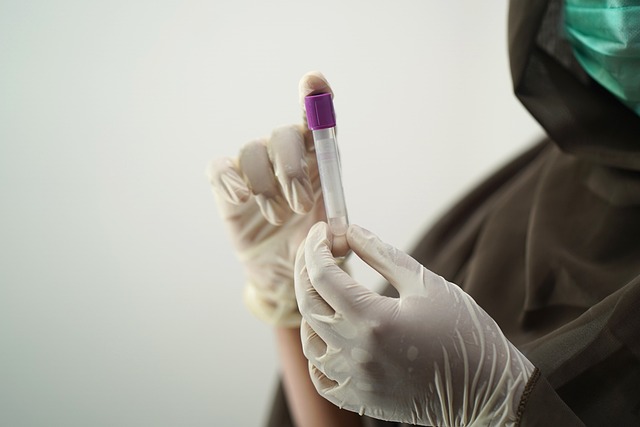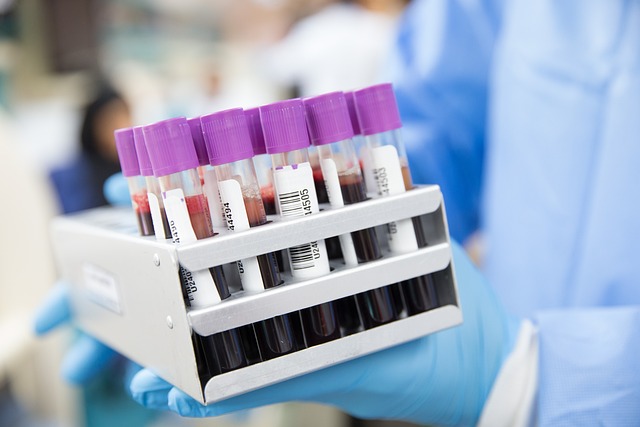In the UK, where sunlight is scarce and the climate doesn't favor natural vitamin D production, maintaining adequate levels of this 'sunshine vitamin' is crucial for overall health. Beyond its role in bone health, Vitamin D plays a significant part in immune function, insulin sensitivity, and influencing testosterone levels in men. Given the UK's weather patterns, dietary sources or supplements are essential year-round. The Testosterone Blood Test UK is an effective tool for assessing both vitamin D status and testosterone levels, providing valuable insights into health. Regular monitoring is important for at-risk groups, including those with darker skin tones, limited sun exposure, older adults, or certain health conditions. By managing Vitamin D levels through diet, supplements, and regular testing, UK residents can support their health and maintain a healthy testosterone balance. The Testosterone Blood Test UK is a key resource in this process, ensuring individuals stay within optimal ranges for both vitamins and hormones, thus supporting wellness in the unique context of the UK's environment.
In the UK, where seasons fluctuate between sunny and overcast, maintaining optimal vitamin D levels is pivotal for overall wellness. This article delves into the significance of vitamin D, beyond its role in bone health, and explores its intricate connection with testosterone as revealed by a testosterone blood test. With a focus on the UK population, we will guide you through understanding how this vital nutrient influences your health, followed by practical tips to effectively monitor and optimise vitamin D levels for enhanced wellness.
- Understanding the Role of Vitamin D in Health: A Comprehensive Guide for the UK Population
- The Relationship Between Vitamin D Levels and Testosterone: What the Blood Test Reveals
- Practical Tips for Monitoring and Optimizing Vitamin D Levels for Enhanced Wellness in the UK
Understanding the Role of Vitamin D in Health: A Comprehensive Guide for the UK Population

Vitamin D, often dubbed the ‘sunshine vitamin’, plays a pivotal role in maintaining overall health and wellness within the UK population. It is a secosteroid that the body synthesises upon exposure to sunlight, and it performs critical functions beyond bone health, which has been its traditionally recognised domain. Emerging research suggests that optimal levels of Vitamin D are integral for regulating immune function, modulating insulin sensitivity, and even influencing testosterone levels in men. In the UK, where sunny days are a cherished rarity, ensuring adequate Vitamin D intake is crucial due to the lower solar radiation received compared to regions closer to the equator. For this reason, health professionals often recommend dietary sources or supplements to maintain optimal Vitamin D levels year-round.
Testing for Vitamin D levels is a straightforward process that can be performed through a simple blood test, such as the Testosterone Blood Test UK, which also measures testosterone – a hormone closely linked to Vitamin D status. This dual assessment can provide comprehensive insights into an individual’s overall health and wellness, as both vitamins and hormones play significant roles in the body’s homeostasis. Regular monitoring of Vitamin D levels is particularly important for at-risk groups, such as those with darker skin tones, individuals with limited sun exposure, older adults, and people with certain health conditions. By understanding one’s Vitamin D status and its implications on testosterone and overall wellness, UK residents can take informed steps to enhance their health and quality of life.
The Relationship Between Vitamin D Levels and Testosterone: What the Blood Test Reveals

Vitamin D, commonly known as the ‘sunshine vitamin,’ plays a pivotal role in maintaining overall wellness, with its relationship to testosterone being a key area of interest for researchers and clinicians. A comprehensive testosterone blood test in the UK can provide insights into this intricate interplay. Vitamin D receptors are present on Leydig cells within the testes, which are responsible for testosterone production. This suggests that optimal vitamin D levels may be crucial for maintaining healthy testosterone levels in males. Studies have indicated that there is a significant relationship between serum vitamin D concentrations and total testosterone in men. A deficiency in vitamin D has been linked to lower testosterone production, which can affect various aspects of health, including muscle function, bone density, and overall mood regulation. Conversely, adequate vitamin D levels have been associated with improved testosterone profiles. For individuals undergoing a testosterone blood test in the UK, it is important to consider their dietary habits, sun exposure, and any underlying health conditions that could influence vitamin D status. This holistic approach ensures a comprehensive understanding of an individual’s overall wellness and how it relates to hormonal balance. Regular monitoring of both vitamin D and testosterone levels can help in the early detection and management of potential deficiencies or imbalances, thereby supporting an individual’s health and well-being.
Practical Tips for Monitoring and Optimizing Vitamin D Levels for Enhanced Wellness in the UK

In the UK, maintaining optimal vitamin D levels is crucial for overall wellness, particularly as the country’s climate can limit sun exposure, a primary source of vitamin D. Regular monitoring of vitamin D through blood tests, such as the Testosterone Blood Test UK, which also measures this vital nutrient, allows individuals to tailor their diet and supplementation strategies effectively. Adequate levels of vitamin D are associated with improved bone health, immune function, and even mental wellbeing. To ensure proper monitoring, it’s advisable to have a baseline measurement taken during the winter months when sunlight is at its lowest, as this will provide an accurate assessment of your vitamin D status throughout the year. In addition to testing, dietary sources rich in vitamin D3 include fatty fish like mackerel and salmon, fortified dairy products, and eggs. For those with limited sun exposure or dietary restrictions, supplementation may be necessary. The UK’s climate, with shorter daylight hours and often cloudy skins, makes this particularly relevant. It’s important to discuss with a healthcare provider the most suitable vitamin D3 supplement dosage to reach and maintain optimal levels for enhanced wellness, as individual needs can vary based on age, weight, and health conditions. Regular follow-up tests every six to twelve months will help monitor your progress and ensure that your vitamin D levels remain within the healthy range, contributing to a holistic approach to maintaining your wellbeing in the UK.
In conclusion, the interplay between Vitamin D levels and overall wellness, particularly its correlation with testosterone as highlighted by the Testosterone Blood Test UK, underscores the importance of regular monitoring for individuals within the UK population. By understanding the role of Vitamin D in health and adopting practical tips to optimize its levels, one can significantly enhance their wellness. Regular testing and dietary adjustments, along with lifestyle changes, are key strategies for maintaining optimal vitamin D levels, which in turn may contribute positively to testosterone balance and overall health. It is a simple yet effective approach to fostering well-being that should not be overlooked by healthcare professionals or the public alike.
